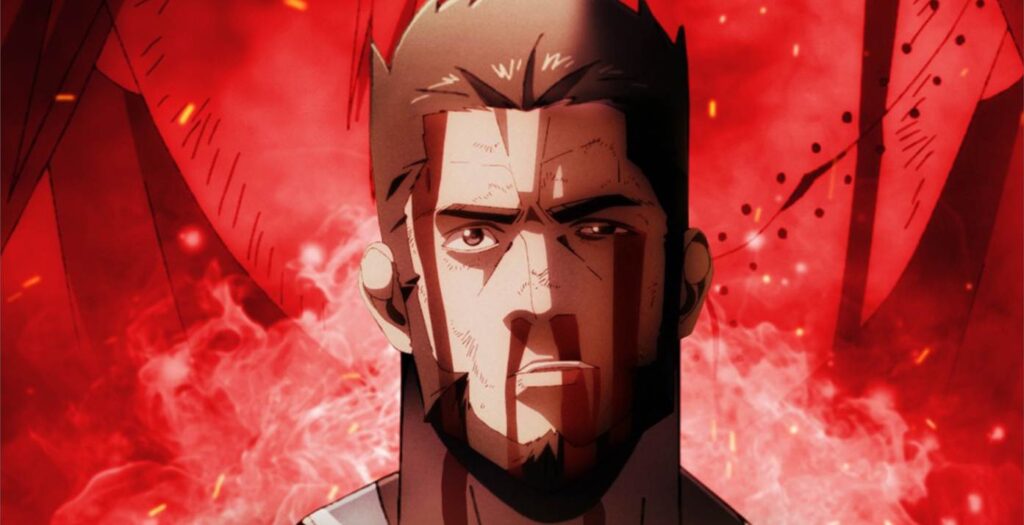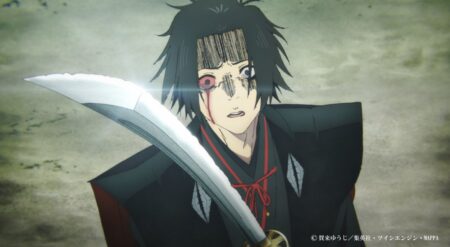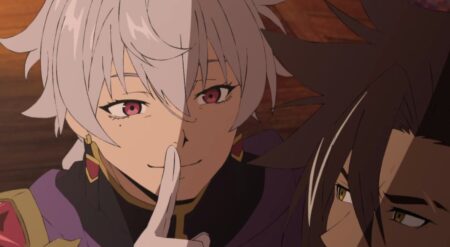Originally a series of martial arts novels by Baku Yumemakura in 1985, Garouden: The Way of the Lone Wolf has now arrived on Netflix. Directed by Atsushi Ikariya and produced by animation studio NAZ, the series features an action-packed look at the world of martial arts. Shannon Sharpe once said, “If you ever see me fighting in the forest with a grizzly bear, help the bear because it’s going to need it.” If any anime character embodies that same energy, it’s Juzo Fujimaki
In his flight from a troubled past, Juzo Fujimaki finds himself thrust into an underground fighting tournament. Armed with expertise in the revered martial art Takemiya-ryu, Juzo confronts a path strewn with formidable adversaries and personal demons. Juzo must grapple with the challenge of subduing his inner beast throughout this turbulent journey, lest it wreak havoc once more.
Garouden: The Way of the Lone Wolf’s intro and outro, “FIGHT & PRIDE” and “CRY BOY,” respectively performed by AA=, effectively capture the series’ progression and Juzo’s persona. They juxtapose loud, intense moments with quiet, reflective ones, mirroring the complexity of Juzo’s character. The outro features serene scenes of nature, symbolizing tranquility and beauty. As the plot unfolds, Juzo confronts the inevitability of conflict, realizing that he can no longer avoid the battles he’s drawn into. Those in front of him risk the rage that permeates the intro.
Growing up, whenever someone asked if I was tuning in for the fights that weekend, I never associated it with boxing. I’m aware this might raise eyebrows among my fellow Mexicans, but I always presumed it referred to the next big MMA fight card. It’s not that I didn’t value boxing as a sport; rather, I found the intricate stylistic matchups in MMA far more enthralling.
Perhaps it was the influence of watching Bruce Lee movies with my father or the prevalence of tournament arcs in early shonen anime, but witnessing experts in diverse combat styles vie for supremacy always captured my attention more than boxing did. It’s possible that my perspective was shaped by the emergence of mainstream MMA in my childhood, but regardless, Garouden: The Way of the Lone Wolf strikes all the right chords to illustrate why MMA is so compelling.
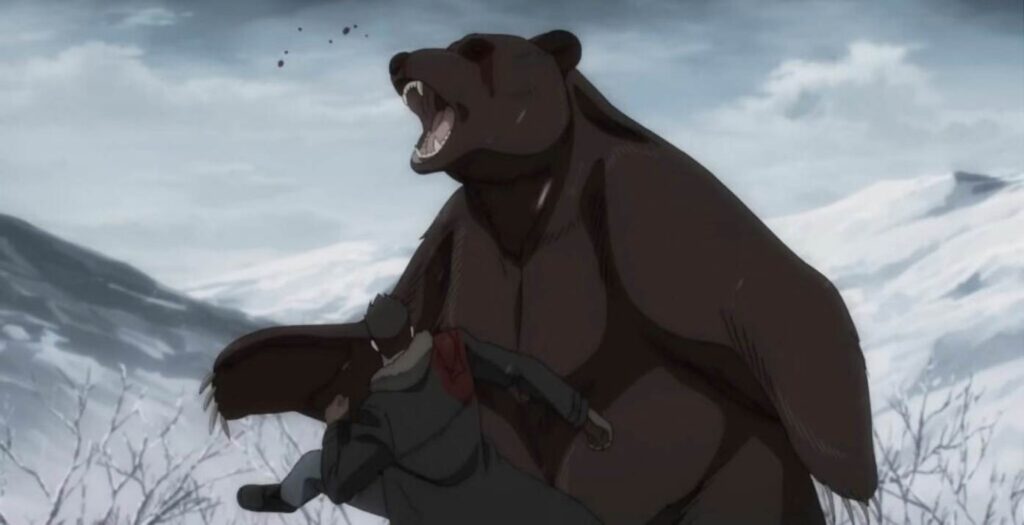
Garouden: The Way of the Lone Wolf doesn’t rely on over-the-top powers to be engaging. Aside from a visual aid to show the beast within Juzo, the fights are straightforward—just two men battling with their fists. No transformations, no intricate power scaling, no holding back. It’s raw combat between individuals who believe they are the best, and it’s as captivating as any modern shonen fight scene.
The fighters each have their motivations, but often, it’s about the art of fighting and the honor and dishonor that comes with it. This series captures the essence of why fans tune in for combat. The best fights are about the sport itself, a pure form of competition often missing in today’s MMA, which focuses more on selling fights like pro wrestling matches.
Despite making its Netflix debut, Garouden: The Way of the Lone Wolf as a whole is a product of its time. There is an action focus that will certainly resonate with martial arts enthusiasts. The animation remains faithful to its manga roots, eschewing flashy visuals for a more grounded approach to combat. This results in fight sequences that closely resemble real-life encounters rather than those seen in superpowered anime. Despite each fighter having their specialties, the seamless incorporation and transition between different styles are exciting to watch, even if the art style may not be the most modern.
With that said, being a product of its time also means you won’t see strong female characters in Garouden: The Way of the Lone Wolf. If there’s anything to skip, it’s the scenes that reduce women to mere objects in the fighters’ lives. Of the three women consistently on-screen, two are there just to motivate the main characters, and the other is an antagonist, no better than the other promoters exploiting the fighters.
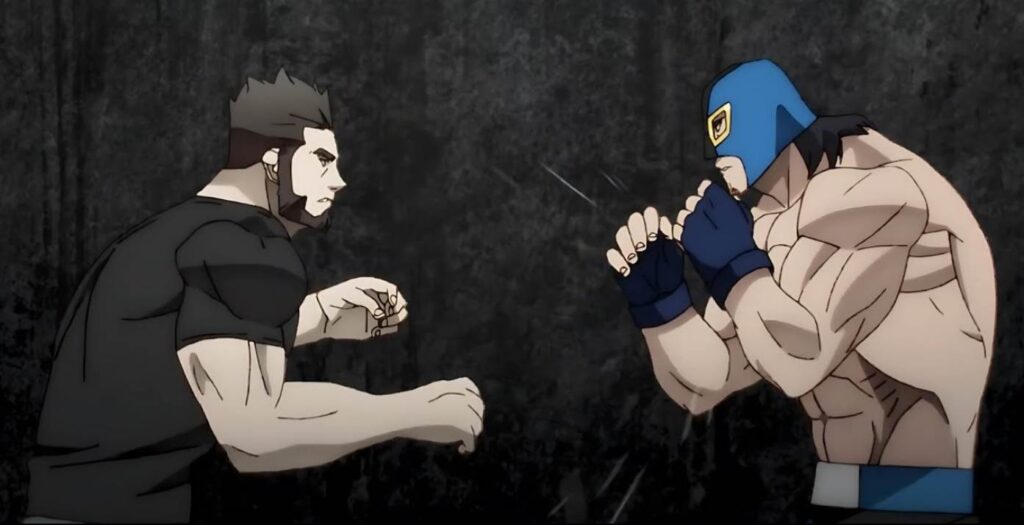
This also means that the plot isn’t particularly deep. Ultimately, most of the fights boil down to proving who is the strongest. That’s the crux of it. As the plot progresses, as simple as it is, there is certainly a world to be built. In the background, there’s a superficial underground organization at play, reminiscent of the Monday Night Wars with WWF vs. WCW, where fighters are mere pawns in a larger game. Yet, akin to those promotions, the series adeptly engages viewers by developing various fighters to root for or against. While many characters may seem one-dimensional, it’s easy to become invested in their journeys and anticipate the next fighter to emerge.
Rooted in the extensive novels dating back to 1985, Garouden: The Way of the Lone Wolf boasts a wealth of untold tales. With such a deep well of source material, a second season could delve further into the intricate lore and compelling characters introduced by Baku Yumemakura. With each episode hinting at broader story arcs and character development, fans can eagerly anticipate the possibility of a continuation. The question now is whether the series is a relic of an older age of anime or can its focus on the art of fighting carry it through.
While thrilling fight sequences are a dime a dozen in modern anime, few are grounded in the authentic martial art styles that have inspired many beloved works. Garouden: The Way of the Lone Wolf brings viewers back to that simplicity. With that simplicity, don’t expect a groundbreaking plot or new-age animation. However, suppose you’re seeking a series that pays homage to martial arts and embodies the spirit of determining whose style reigns supreme, reminiscent of classic martial arts films. In that case, Garouden is sure to be for you.
Garouden: The Way of the Lone Wolf is streaming exclusively now on Netflix.
Garouden: Way of the Lone Wolf
-
Rating - 7.5/107.5/10
TL;DR
While thrilling fight sequences are a dime a dozen in modern anime, few are grounded in the authentic martial art styles that have inspired many beloved works. Garouden: The Way of the Lone Wolf brings viewers back to that simplicity. With that simplicity, don’t expect a groundbreaking plot or new-age animation.

